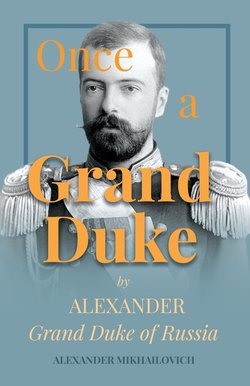Читать книгу Once A Grand Duke by Alexander Grand Duke of Russia - Alexander Mikhailovich - Страница 29
На сайте Литреса книга снята с продажи.
4
ОглавлениеThe twenty-six months that elapsed between the assassination of Alexander II and the coronation of Alexander III, were marked by a magic improvement in the internal situation of Russia. The magnificent autocrat of Gatchino had dealt the revolution a severe blow. The majority of the nihilists were caught and punished; the minority went into hiding and exile. “A new deal for the peasants,” proclaimed from the steps of the throne, signified that the Czar understood the necessity of bridging the gap between palace and people. The institute of the “Rural Magistrates” (“Zemsky Nachalnyk”) created in 1882 filled the gap left wide open by the Manifesto of the Liberator of the Serfs. Acting in their capacity of official representatives of the Government, these magistrates assumed an important place in the life of the villages. They provided agricultural advice, they acted as lawyers, they supplied information about the free lands distributed by the Government to willing emigrants in Siberia and Turkestan, they helped the peasants secure loans and market farm products; but most important of all, they became instrumental in exterminating that subconscious anarchism of the Russian village which was molded by the centuries of Tartar oppressors and Moscow head-tax collectors. In order to appreciate the shrewdness of this particular reform of Alexander III, one has to realize that the Russian peasants liked the Czar but hated the state. Unaware of the vital functions fulfilled by the state, they viewed it as a monster that grabbed everything, giving nothing in return. The state demanded its recruits, it extracted its dues, it recited the endless list of its “don’ts,” but it never gave the least bit of encouragement. As long as they remained serfs they felt that the landlord—bad as he was—protected them against the onslaught of the state; having obtained freedom in 1861 they lost the privilege of enlisting the assistance of their master and became an easy prey to the garrulous agitators who were promising the advent of a golden stateless era. Naturally enough, the appearance of the rural magistrate was met at first by hostile whispers and suspicious glances. The consensus of opinion had it that the state was sending “spies.” The task of the new officials proved to be extremely hard; it called for tact and diplomacy. The confidence of the peasants had to be gained inch by inch.
Alexander III took a vivid interest in the progress made by his “ambassadors to Their Majesties the Villagers,” intending to follow up the trial period of their activities with another reform, which was to help the peasants increase their meager land-holdings. It was unfortunate that his premature death interfered with the realization of his favorite idea of creating a strong class of prosperous peasants, although the rural magistrates did render an important service to the state, their unpopularity among the revolutionaries testifying to the fact of their usefulness. Talking to the delegation of the peasants at his coronation in Moscow on May 15, 1883, the Czar asked them to express their frank opinion of the institute of the rural magistrates. Old and young alike—there were some ten thousand villagers from different parts of Russia—voiced their unanimous approval of the friendly “chinovnicks” (government officials) and hoped to see them invested with additional judicial authority.
